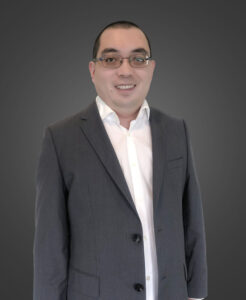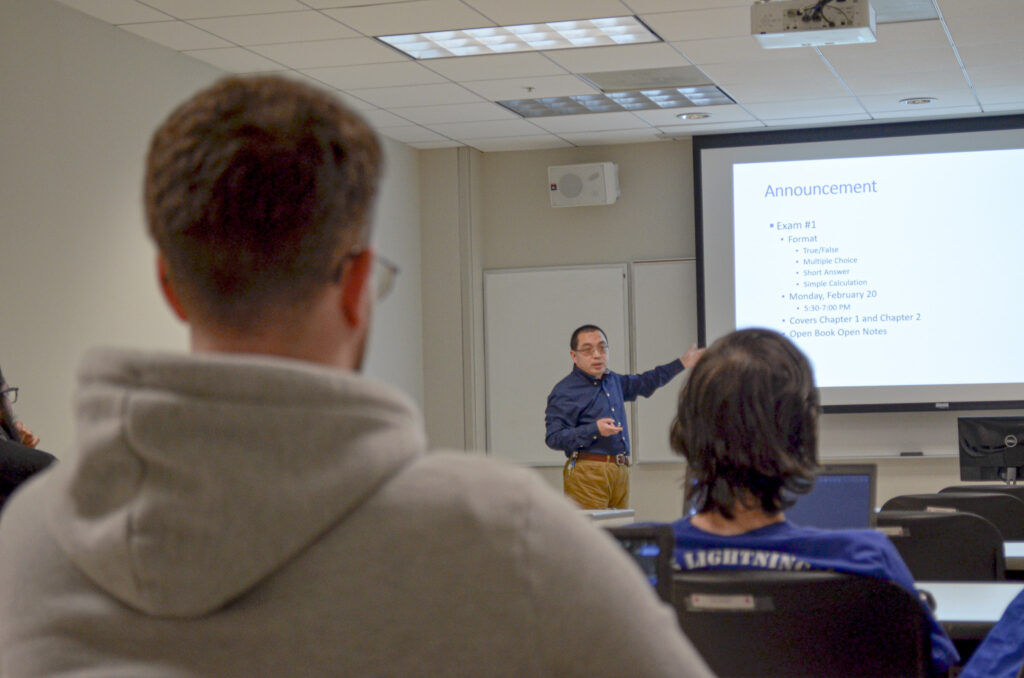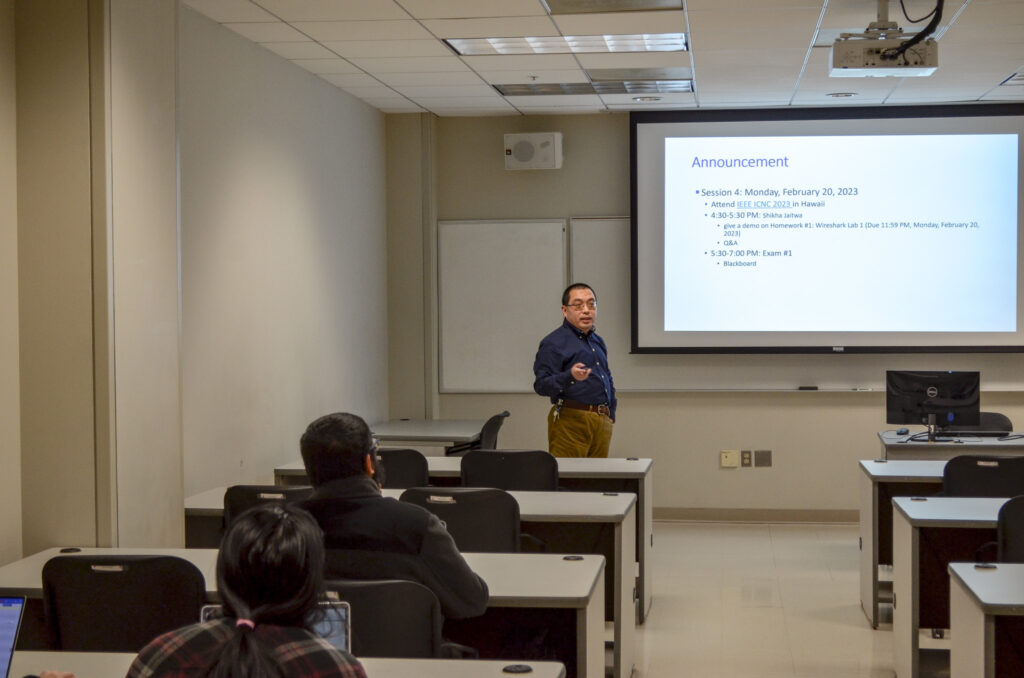Houbing Herbert Song, Ph.D., is an Associate Professor whose research interests include cyber-physical systems/internet of things, cybersecurity and privacy, and AI/machine learning/big data analytics. His research has been sponsored by federal agencies (including National Science Foundation, US Department of Transportation, and Federal Aviation Administration, among others.) He is the Director of the NSF Center for Aviation Big Data Analytics (Planning), the Associate Director for Leadership of the DOT Transportation Cybersecurity Center for Advanced Research and Education (Tier 1 Center) and the Director of the Security and Optimization for Networked Globe Laboratory, SONG Lab, at UMBC. He serves as an Associate Editor for IEEE Transactions on Artificial Intelligence, IEEE Internet of Things Journal, IEEE Transactions on Intelligent Transportation Systems, and IEEE Journal on Miniaturization for Air and Space Systems. He received his Ph.D. degree in electrical engineering from the University of Virginia.
 Information Systems: This is your first semester teaching at UMBC. What are you teaching this semester and what are you most excited about for the upcoming year?
Information Systems: This is your first semester teaching at UMBC. What are you teaching this semester and what are you most excited about for the upcoming year?
Houbing Herbert Song: I am teaching IS 450/650 Data Communications and Networks this semester. I am most excited about developing and teaching a new graduate level course, IS 698/800 Neurosymbolic AI, for the upcoming fall semester. Neurosymbolic AI is the third wave of AI. It combines neural networks with symbolic representations, making them more versatile and dependable.
Information Systems: Your key areas of research include cyber-physical systems/internet of things, cybersecurity and privacy, and AI/machine learning/big data analytics. How did you first get interested in these and then be motivated to pursue them as a career?
Houbing Herbert Song: During my PhD study at the University of Virginia, I took one new graduate level course CS 6501: Cyber-Physical Systems taught by Prof. John A. Stankovic, who is one instigator of the emerging field of cyber-physical systems (CPS). I quickly recognized that the field is where I could leverage my unique multidisciplinary background spanning electrical engineering, computer science and civil engineering to make original contributions at the intersection of cyber-physical systems/internet of things, cybersecurity and privacy, and AI/machine learning/big data analytics. Then I decided to pursue them as a career. Recently I have been elevated to IEEE Fellow for contributions to big data analytics and integration of AI with Internet of Things and named as an ACM Distinguished Member for outstanding scientific contributions to computing. The Institute of Electrical and Electronics Engineers (IEEE) is the world’s largest technical professional organization dedicated to advancing technology for the benefit of humanity. The rank of Fellow is the highest grade of membership in the IEEE, and is considered both a prestigious honor and an important career achievement. Less than one-tenth of one percent of the organization’s total membership is selected for recognition with this honor annually. I was one of 319 members, out of 427,000 worldwide, who were approved for the distinction by the IEEE Board of Directors for 2023. The Association for Computing Machinery (ACM) is the world’s largest educational and scientific computing society. The Distinguished Members Grade recognizes those ACM members who have achieved significant accomplishments or have made a significant impact on the computing field. I was one of 67 members, out of nearly 110,000 worldwide, who were named 2022 Distinguished Members. As UMBC’s newest IEEE Fellow (1st in the IS Department and 8th at UMBC) and ACM Distinguished Scientist, I am glad that I made the right decision several years ago and my contributions have been recognized by my professional societies.
Information Systems: You are the founding director of the Security and Optimization for Networked Globe Laboratory (SONG Lab) and bring this center to UMBC. What are some notable projects you are conducting now and what are the collaborative research opportunities available for PhD students and postdoctoral positions?
Houbing Herbert Song: The SONG Lab is conducting research on 5 projects (SaTC, CyberTraining, IUCRC, FMSG, and SWIFT) sponsored by NSF, 1 project sponsored by DOT, and 1 project sponsored by NASA. The SaTC project focuses on developing novel, transformative, multidisciplinary approaches that ensure the security of unmanned aircraft systems and other autonomous systems. The CyberTraining project focuses on creating advanced cyberinfrastructure (CI) to enable and potentially transform fundamental cybersecurity research and education in the age of AI/machine learning. The IUCRC Planning project aims to establish NSF Center for Aviation Big Data Analytics (Planning). The FMSG project focuses on developing AI/machine learning algorithms for anomaly detection to catalyze new manufacturing capabilities. The SWIFT project focuses on developing AI/machine learning algorithms for improved resiliency via spectral adaptation. The DOT project, a part of DOT Tier 1 Center ($10-million, five-year): Transportation Cybersecurity Center for Advanced Research and Education, focuses on conducting research on reducing transportation cybersecurity risks. The NASA project, a part of University Leadership Initiative (ULI) program: Mobility-Energy-Coordinated Platform for Infrastructure Planning to Support Electric Vertical-Take-Off-and-Landing (eVTOL) Aircraft Operations, focuses on gathering data about current and projected Advanced Air Mobility (AAM) operations to help produce models that could inform decisions on how the electric grid infrastructure can support future AAM activity, including the demand for aircraft charging stations.
The SONG Lab has completed multiple projects sponsored by federal agencies (including NSF, DOT and Federal Aviation Administration, among others) and industry. These projects spanned cyber-physical systems/internet of things, cybersecurity and privacy, and AI/machine learning/big data analytics. The SONG Lab has licensed 2 patents to industry for commercialization and graduated 3 PhD students all of whom have been hired as tenure-track assistant professors at US universities. The SONG Lab’s research has been featured in many popular news media outlets, all of which can be found on the website.
There are several PhD student openings and postdoc positions in the SONG Lab. I look forward to working with well-motivated PhD students on exciting research projects at the intersection of cyber-physical systems/internet of things, cybersecurity and privacy, and AI/machine learning/big data analytics.
Information Systems: In addition to your teaching and running the SONG Lab, you are the editor of four IEEE journals and actively involved in that organization. First, how do you possibly have the time to do all this amazing work! Second, why is it important for you to stay connected and involved with these activities?
Houbing Herbert Song: First, effective time management is essential. Editorial activities and conference organization activities are part of my volunteer service to IEEE. These activities are complementary to my teaching and research. I acquired a deeper understanding of my field from these activities, which in turn promotes my teaching and research.
Second, IEEE is my professional home. IEEE is built on the strength of its members and their volunteer efforts throughout the organization. Volunteering benefits IEEE as an organization. This is why I volunteer with IEEE. Recently I have joined 2023 IEEE Computer Society Fellow Evaluating Committee. My responsibility is to determine whether the work of each candidate is recognized and considered outstanding in the Society’s field of interest. My other professional home is ACM. As an ACM Distinguished Speaker, I give lectures at corporations, colleges and universities, events and conferences and ACM local chapters all over the world.
Information Systems: What do you like to do in your free time? Any particular hobbies or interests you’d like to share?
Houbing Herbert Song: I play with my kids in my free time. We cycle together, watch movies together, and get involved in craft projects together.
Information Systems: Anything else you would like for the UMBC community to know about you and/or your research?
Houbing Herbert Song: If you are interested in advancing research and education through discovery and innovation at the confluence of cyber-physical systems/internet of things, cybersecurity and privacy, and AI/machine learning/big data analytics, I look forward to collaborating with you. More information about my research can be found at the SONG Lab’s website: http://www.songlab.us/.

